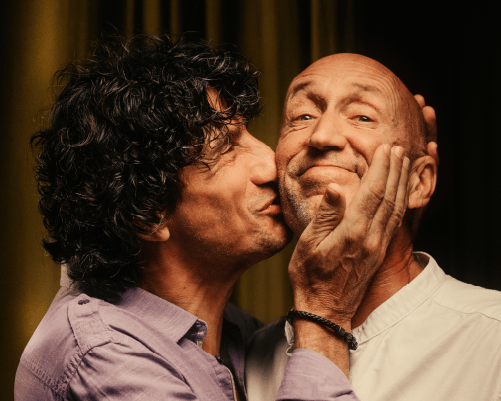GUEST PERFORMANCE: Arlecchino e il suo Doppio
“Harlequin and his Double” – It can be said that Harlequin is a mythical character: it does not end in a single particular story. Like Oedipus, Prometheus, and perhaps Hamlet, Harlequin is a figure that embodies something of the dark human depth. It is said that its progenitors – or prototypes – made their carnival raids into society after a ritual period of permanence in the forest, in the wild. From these roots derive the most effective behavioral ways of this character, his extraordinary
postures, the contradictory angles of his body, his animalistic rhythms. Hamlet, the black prince, is instead the messenger of suicide: the rational soul of the man who rejects evil up to reject the
world and therefore his own reality and life. The civilian man who pretends to be crazy to escape the madness of the bullies. The son is so obsessed with obtaining justice for his father’s death to turn his own body into a bundle of contradictions… In this show, Arlecchino and Hamlet, a comical and savage “animal” and a rough and dark “dandy” are competing for our heart over the vertigo of life, in a world where it is increasingly hard to deceive thyself. After having argued, very modernly, both in English and in “Harlequinese”, between a rock song and a waltz by Strauss,
between a trip on the Titanic and some roundtrip from Hell, at the end – it seems – Arlecchino wins …
But, Will he still be himself? Claudia Contin Arlecchino evokes the enormous ghosts of these two characters by physically celebrating, with the generosity and precision for which it is famous, two emblematic iconographies with undeniable archetypal value: on one side that of the Commedia dell’Arte, on the other the extreme and “impossible” one of the human bodies painted by Egon Schiele. Against the light, under this “two-faced” dance, appears the intense emotional biography of an artist citizen of the third millennium. A journey into the main contradiction of contemporary man: on the one hand the elementary trust in life and nature, on the other, the temptation of nihilism and negative fatalism.
